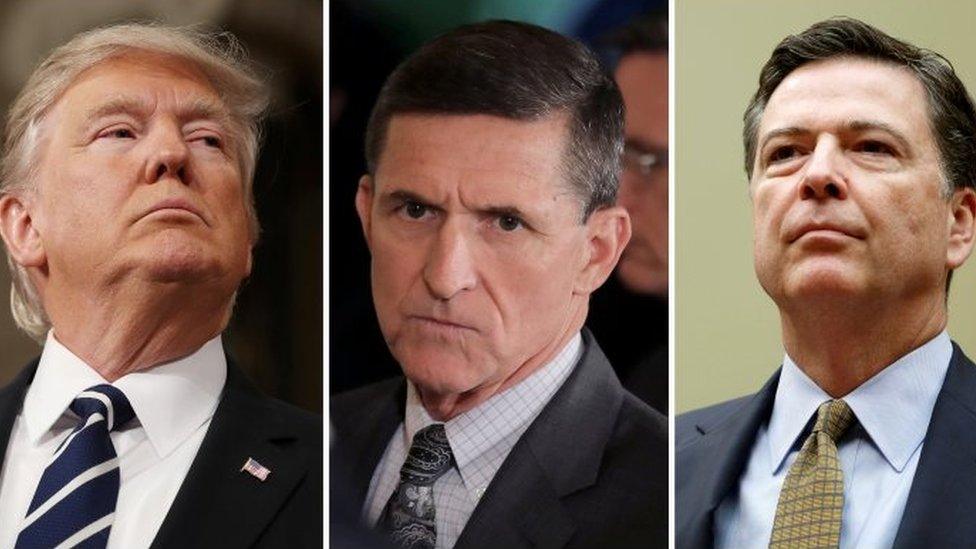George Papadopoulos: Ex-Trump adviser jailed in Russia inquiry
- Published
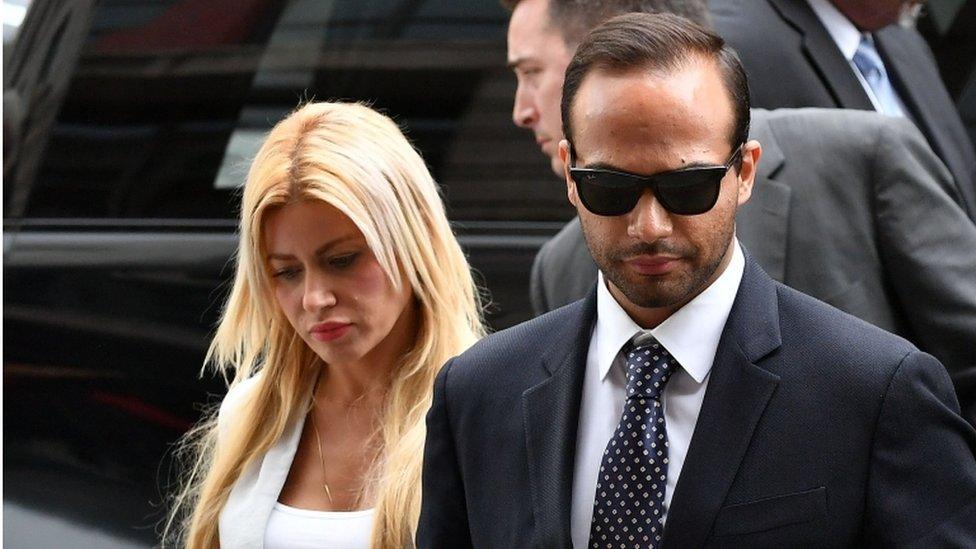
George Papadopoulos and his wife Simona Mangiante Papadopoulos arrive at US District Court for his sentencing
The former Trump adviser whose remarks in a London pub sparked the US inquiry into possible collusion with Russia has been sentenced to 14 days in jail.
George Papadopoulos, 31, told the court in Washington DC he was a "patriotic American" who made a mistake by lying.
He pleaded guilty last October to lying to the FBI about the timing of meetings with alleged go-betweens for Moscow.
He was the first former Trump aide arrested in the probe into an alleged Kremlin plot to sway the 2016 US vote.
US President Donald Trump reacted by taking an apparent swipe at the cost of the investigation into the former aide.
Allow X content?
This article contains content provided by X. We ask for your permission before anything is loaded, as they may be using cookies and other technologies. You may want to read X’s cookie policy, external and privacy policy, external before accepting. To view this content choose ‘accept and continue’.

In Friday's sentencing, Papadopoulos was also handed 12 months of supervised release, 200 hours of community service, and a fine of $9,500 (£7,350).
He said in court that his "entire life has been turned upside down" and he hoped "for a second chance to redeem myself".
Papadopoulos concluded by saying "this investigation has global implications, and the truth matters".
Who is George Papadopoulos?
The Chicago native was a London-based petroleum analyst before he joined the Trump campaign in March 2016 as a volunteer foreign policy adviser.
Papadopoulos soon made contact with a mysterious Maltese academic, Joseph Mifsud.
The professor told Papadopoulos the Russians had "dirt" on Mr Trump's Democratic presidential rival Hillary Clinton in the form of "thousands of emails".
In the following months, thousands of emails linked to the Clinton campaign were published by Wikileaks.
What did Papadopoulos say he told Donald Trump?
The young political operative told Mr Trump, then a Republican presidential candidate, and other members of the campaign's national security team that he could set up a meeting with President Vladimir Putin ahead of the 2016 election.
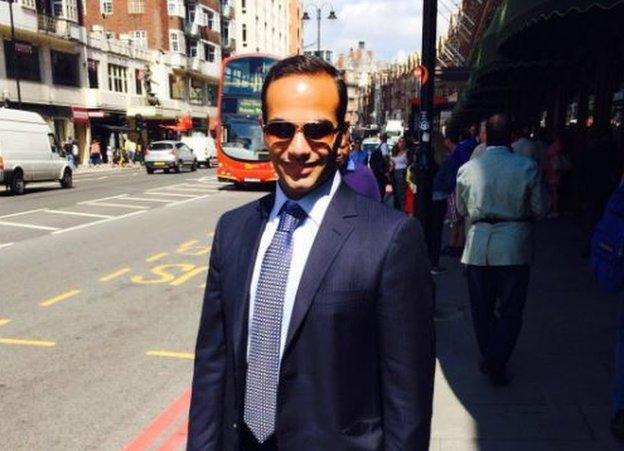
Papadopoulos says he was told the Russians possessed "dirt" on Hillary Clinton
A pre-sentencing statement last week read: "While some in the room rebuffed George's offer, Mr Trump nodded with approval and deferred to Mr Sessions, who appeared to like the idea and stated that the campaign should look into it."
Papadopoulos told CNN in an interview aired on Friday that Mr Trump "gave me a sort of a nod" and "wasn't committed either way" about the idea of a meeting with the Russian leader.
But he said then-senator and now-Attorney General Jeff Sessions "was actually enthusiastic". Last November, Mr Sessions testified to Congress that he had "pushed back" against Papadopoulos' offer.
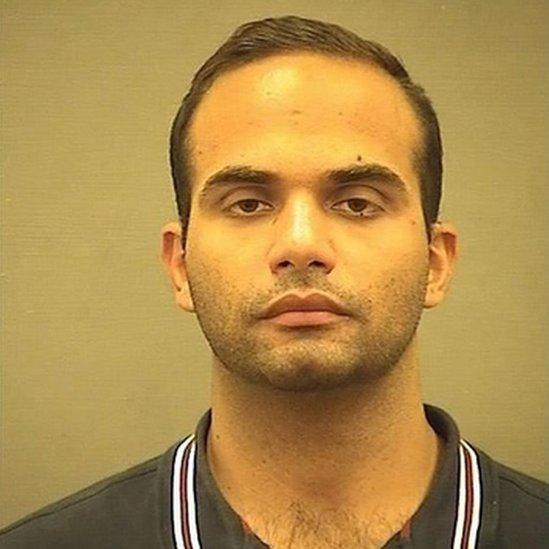

How did this come out?
American authorities were alerted in mid-2016 after Papadopoulos told an Australian diplomat during a drinking session in a London pub about his meetings with Professor Mifsud.
The envoy told US investigators, shortly after the emails hacked from the Democratic Party were leaked.
When the FBI interviewed Papadopoulos in January 2017, he falsely claimed he had met two individuals with Russian ties before he joined the president's team in March 2016.
He had actually met them after joining Mr Trump's campaign.
One individual was a Russian woman whom Papadopoulos believed had connections to the Russian government.
In July 2018, the US Department of Justice charged 12 Russian intelligence officers with hacking Democratic officials.
What effect did the lies have?
Prosecutors said Papadopoulos's lack of cooperation with investigators meant they were unable to effectively question or detain Mr Mifsud. The professor has since left the United States.
No connection between Mr Misfud and the hacked emails has been proven.
The Democratic National Committee, which is suing Russia, the Trump campaign and WikiLeaks over the alleged election interference in the 2016, filed a court document on Friday, saying Mr Mifsud "was missing and may be deceased", without any further explanation, according to Bloomberg News.
It referred to him as a key figure to have evaded the Mueller inquiry.
What did Papadopoulos say?
"I made a dreadful mistake, but I am a good man who is eager for redemption," Papadopoulos said.
He said he lied not to impede investigation but "to preserve a perhaps misguided loyalty to his master".
Judge Randolph Moss said he took the "genuine remorse" into consideration for the sentencing.
The only other person to be sentenced in the investigation - lawyer Alex Van Der Zwaan - received 30 days in prison. His judge referred to his regret as "muted".
Outside court on Friday, Papadopoulos' lawyer, Thomas Breen, said his client was a "fool" and had acted "stupidly" in lying to the FBI.
But the attorney said "the president of the United States hindered this investigation more than Papadopoulos ever could".
He said Mr Trump had hampered the inquiry by calling it a "witch hunt" and "fake news".
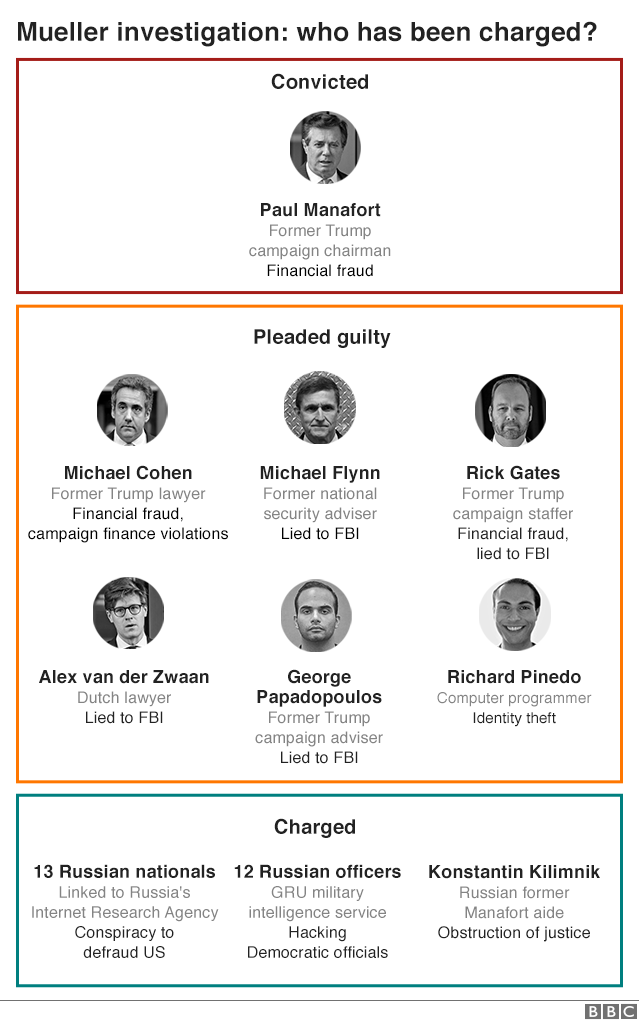
- Published31 August 2018
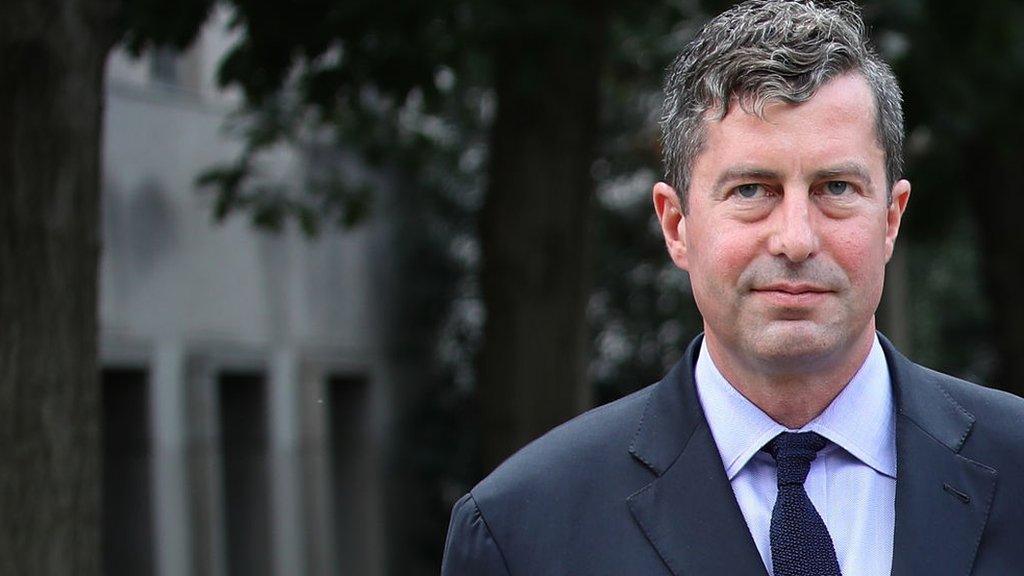
- Published25 March 2019
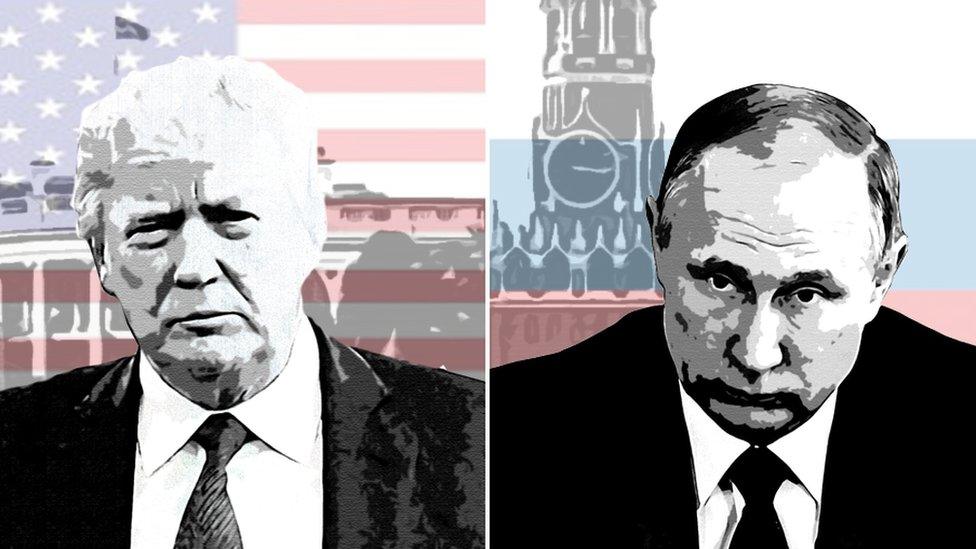
- Published22 August 2018
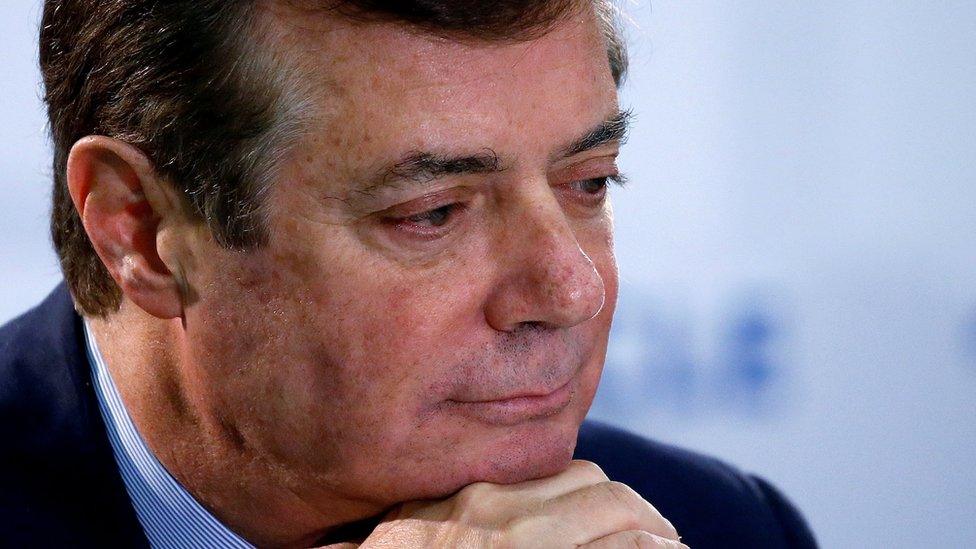
- Published24 July 2019
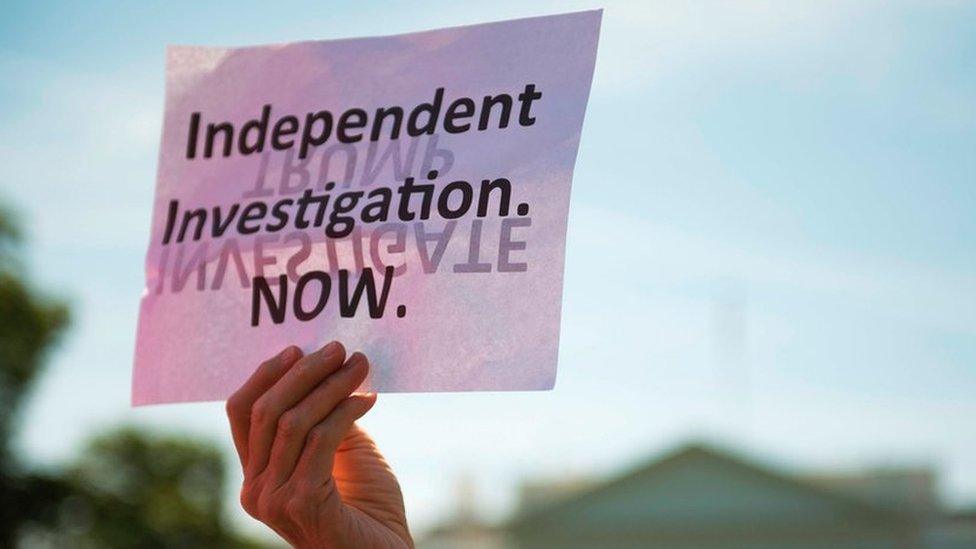
- Published1 November 2017
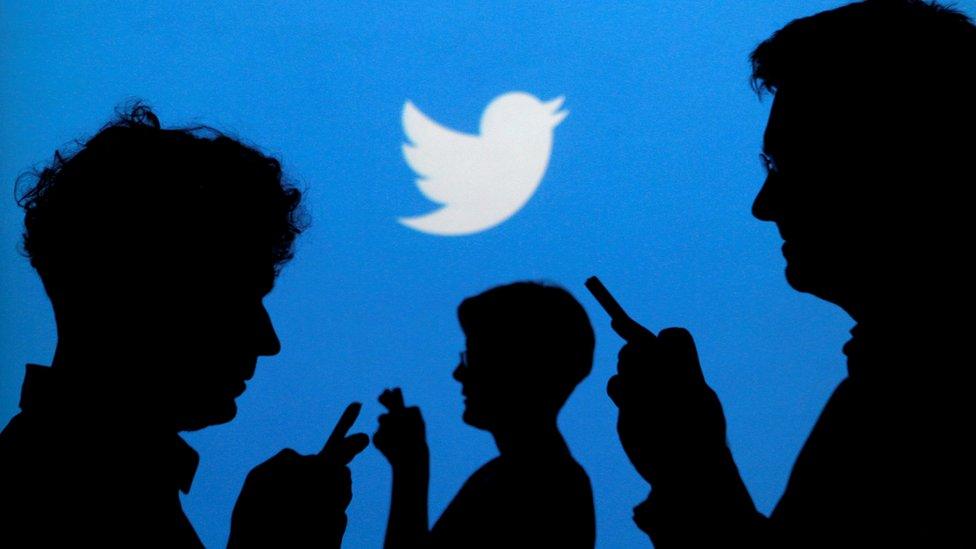
- Published30 October 2017
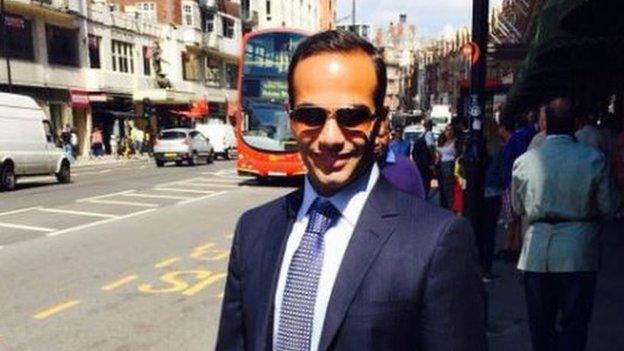
- Published22 August 2018
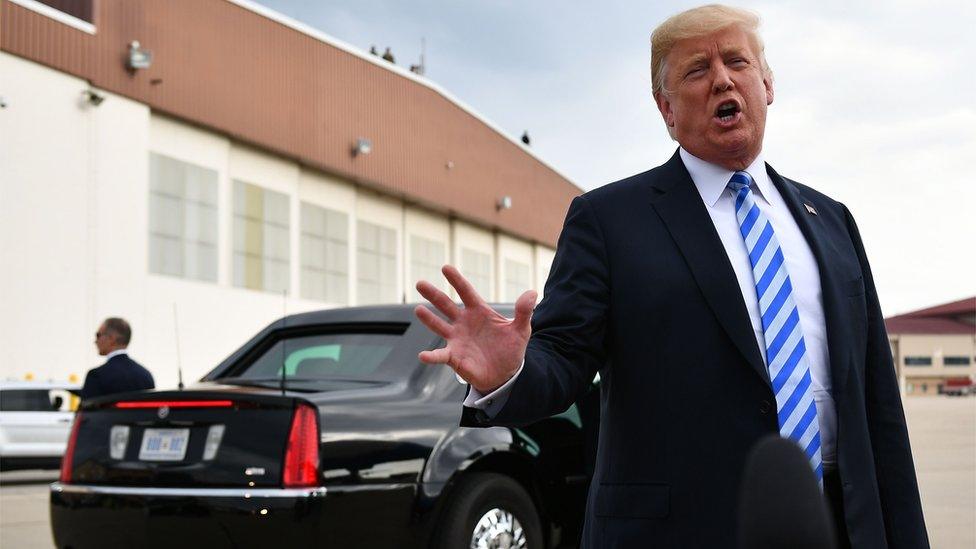
- Published12 July 2017
